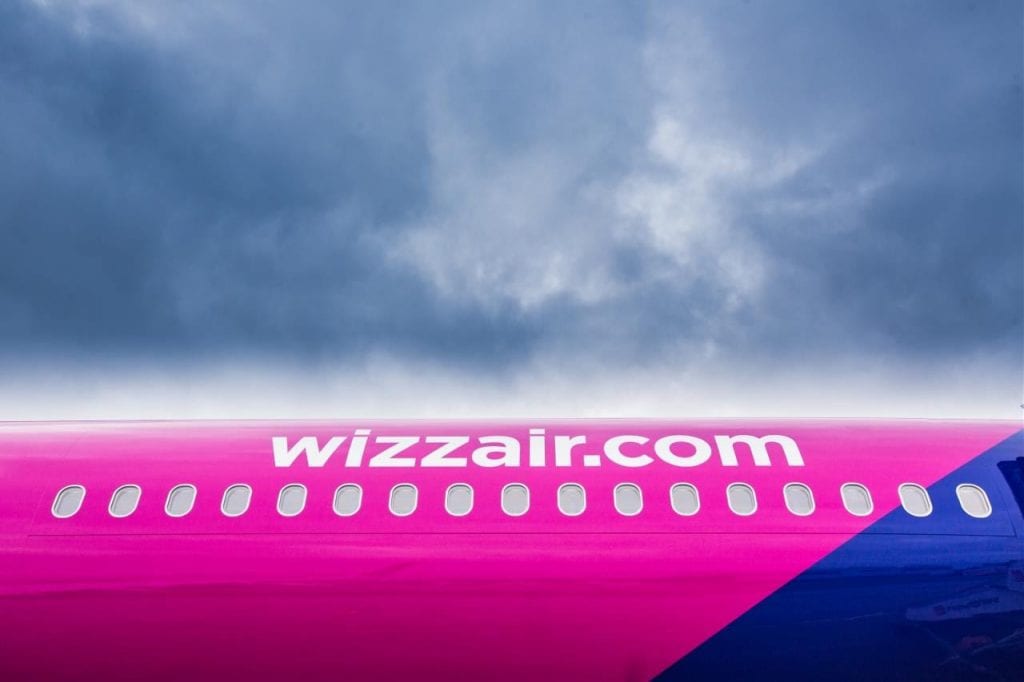Skift Take
Brexit might end up being pretty painful for the European aviation industry, especially those airlines with big operations into and out of the UK. Will Wizz Air be able to take advantage of this turbulence? We'll have to wait and see.
While Brexit continues to worry most of the European travel industry, low-cost airline Wizz Air thinks the UK market still offers plenty of opportunities.
In May, the company started flights through its subsidiary Wizz Air UK, set up in part to mitigate the impact of the UK’s impending departure from the European Union.
It now currently operates seven aircraft with plans for three more and CEO József Váradi believes the company is now in a good position.
“We continue to believe that the UK is a unique Western European opportunity for Wizz. And we will use Wizz UK as an operating platform for expanding our reach in the marketplace,” Váradi told investors on an earnings call this week after the release of the company’s half-year results.
“On the one hand, this is a Brexit contingency, but on the other hand we think Wizz UK actually can be a consolidating platform in the UK. And there might be more turbulence coming and we will make sure that we have a position here in the UK to further expand our business.
“That doesn’t mean buying airlines or other business. We are not going to buy any airlines. But we might be acquiring assets what we can fold into our operating platform.”
Brexit isn’t the only cloud on the horizon for airlines. The price of fuel is still a worry — although it has fallen in recent weeks and many in there are some in the industry that think there are still too many smaller carriers.
In recent years a number of airlines have collapsed, including Air Berlin, Monarch and most recently Primera Air.
Testing Times
Even though Wizz Air plans to take advantage of instability within the industry, it is not immune to these issues.
Summer air traffic controller strikes as well as increased fuel costs forced the company to cut its net profit guidance from a range of $355-$389 million (€310-€340 million) to $309-$343 million (€270m-€300 million.)
“The encouraging revenue environment, robust demand and an improved operational performance combined with our relentless focus on costs will enable the Company to offset approximately half of the fuel headwind which is estimated at around $92 million (€80 million) for the full year and disruption costs,” Váradi said.
The company reported a 20 percent rise in revenue to $1.6 billion (€1.4 billion) for the six months to the end of September. Profit in that same period fell 1.7 percent to $338 million (€295.5 million.)
Tour Operator Closure
Wizz Air also used its market updates to confirm the closure of its in-house tour operator Wizz Tours.
Rivals such as Ryanair and EasyJet are investing in broadening their product portfolio and so the closure comes as something of a surprise.
Wizz Tours made a half-year loss of $2.3 million (€2 million) on revenue of $13 million (€11.4 million.) The small contribution to the overall business—less than 1 percent of total revenue—perhaps explains the decision.
Váradi said Wizz Tours was “a very low risk proposition” and it didn’t work out because it couldn’t achieve the same margins as the airline.
The Daily Newsletter
Our daily coverage of the global travel industry. Written by editors and analysts from across Skift’s brands.
Have a confidential tip for Skift? Get in touch
Tags: brexit, europe, low-cost carriers, Monarch, primera air, wizz air
Photo credit: A Wizz Air A321. The carrier wants to take advantage of any Brexit-related airline turbulence. Wizz Air
